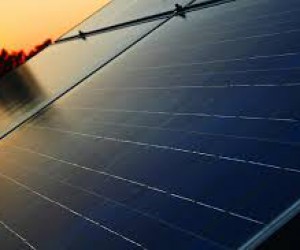The regular occurrence of power outages which have been on-going since 2008, and the more recent load shedding that took place in early March, coupled with the increasing electricity price hikes, are making renewable energy sources, such as photovoltaic (PV) electricity generation, an increasingly attractive energy source for business owners.
This is according to Arthur Chien, VP of Talesun Energy, a leading supplier of solar energy, who says that when making the decision to move away from traditional fossil fuels and towards solar energy as an electricity generation source, businesses need to educate themselves about solar energy suppliers and the components thereof.
“Many investors who look to select a PV solar energy provider are uncertain of what guidelines to follow when doing so. They are also unaware of the many technicalities which may sway their decision, such as the whether to choose a company that manufactures crystalline solar panels, made from bulk silicon that is separated into multiple sets according to crystallinity and crystal size, or thin film, which is developed from one of a few different photovoltaic materials, including amorphous silicon, hazardous cadmium telluride and copper indium gallium diselenide (CIGS).
Chien says that it is pertinent to be knowledgeable on this information when selecting a solar PV provider, as it will help to narrow down the best performance module that ensures economic payback of the power produced, or a solid warranty.
He advises not to base the purchase decision on solar panel cost alone. “The cost to manufacture thin film is cheaper than crystalline because it requires less expensive semiconductor material and fewer steps to manufacture. However, it has the lowest conversion efficiency of all the panel types and generates much less electricity for the same surface area as a crystalline panel.“
According to Chien, crystalline solar panels have the highest efficiency rates as they are made out of the highest-grade silicon, and are as a result the module of choice for many PV energy producers. They are also space-efficient and have the longest life-span out of all the solar panels available.
“Thin-film modules reach efficiencies between 7–13%, whereas Talesun polycrystalline-based solar panels have efficiencies between 13-16% and monocrystalline have 15-20% efficiency. Of course this has a direct impact on the power output per sqm."
In addition to being well-informed on the different types of modules, Chien advises that businesses consider the following key points around solar energy supply when selecting a PV company.
- Investigate how the modules perform in terms of tolerance levels, temperature co-efficiency rating and the conversion efficiency
-Tolerance efficiency refers to whether the modules exceed, or do not meet its rated power.
- The temperature co-efficient rating determines the impact heat has on a solar panel’soperation after installation.
- The conversion efficiency is the efficiency of how a solar panel converts light into electrical energy, and will determine how much power a system generates.
- Whether energy produced can be sold to the principal power grid in order to make an additional profit.
- Compare the warranty details of the solar modules you are considering with those of other solar manufacturers. Solar modules should have a warranty of 25 years.
- Research the company that manufactures the modules. It is important to note that a warranty is only valid for the length of time in which a company operates. For this reason, it is imperative to choose a well-known solar panel supplier, as opposed to a low-cost brand that may vanish from the market.
- It is important that PV manufacturers acquire certifications such as International Electrotechnical Commission (IEC) and International Organization for Standardization (IOS) as these ensure the continuous monitoring of the production process of PV modules. For example modules have to be highly reliable, optimise operational safety and ensure low degradation of the modules.
- Recycling of thin film solar panels after their lifespan is more expensive than the recycling of crystalline panels as it contains a hazardous material called cadmium telluride, which might not be dangerous when it is inside a panel, but needs to go through more complex and cautious recycling procedures. Solar energy is considered to be a clean source of energy and making use of the toxic substance cadmium telluride in PV panels goes against this. The recycling of silicon wafers is a more environmentally friendly process as it does not contain cadmium telluride.










